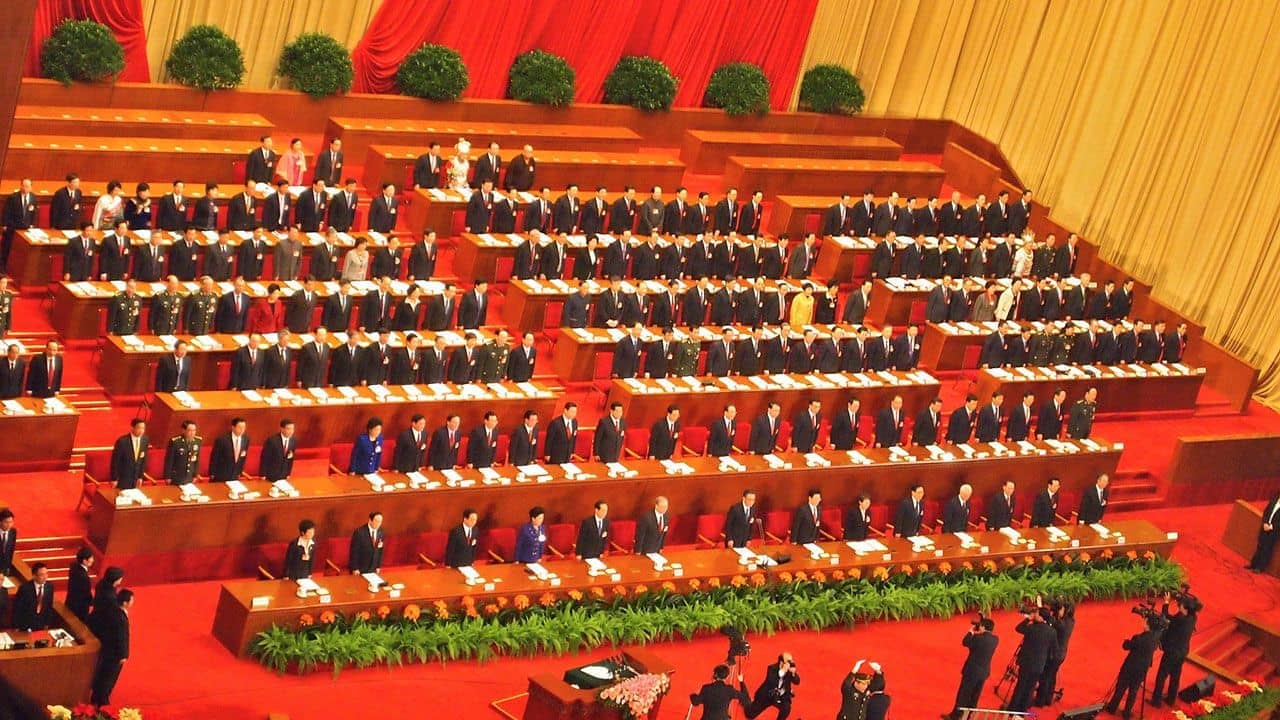
New York/The Hague, May 29, 2020: Yesterday, 28 March 2020, the National People’s Congress (NPC) of the People’s Republic of China (PRC) nearly unanimously adopted a resolution to enact a new National Security Law that may have devastating consequences for human rights in Hong Kong and represents a profound assault on Hong Kong’s autonomy and an unacceptable breach of international law.
As international news sources report, the broad legislation would “ban secession, subversion of state power, terrorism, foreign intervention” and would “allow mainland China's state security agencies to operate in the city,” as Chinese authorities would be expected to dispatch state security personnel to assure implementation of the law. This legislation would bypass the Hong Kong Legislative Council, going straight to the sympathetic Hong Kong government “via a rarely-enacted constitutional backdoor”, dealing a devastating blow to legislative autonomy guaranteed by and inherently violating the two systems-one State agreement that forms the cornerstone of PRC-Hong Kong relations. Further, the legislation is overwhelming opposed by the people of Hong Kong, when protests have mounted over the last five days despite attempts by police to intervene to suppress any form of dissent.
Parliamentarians for Global Action (PGA), the largest worldwide network of individual legislators, joins human rights groups in condemning this bill, which Human Rights Watch has called “the most severe blow to the rights of people in Hong Kong since the territory’s transfer to China in 1997.”
PGA President Ms. Margareta Cederfelt (MP, Sweden), expressed concern for human rights and the Rule of Law in the island that hosts one of the largest financial hubs of the world:
The treaty between the People's Republic of China and the United Kingdom that establishes the autonomy of Hong Kong from 1997 to 2047 provides for a constitutional framework of two systems in one State. As described by the international media, the new Security Law for Hong Kong would breach the 1994 Sino-British treaty and would constitute a flagrant violation of International Law, to which all States must abide.
On 22 May 2019, the Chair of the PGA UK National Group, Mr. Mark Pritchard, MP (UK), in a Tweet supported by the Hong Kong Democracy Movement, “[welcomed] the joint statement by UK Foreign Secretary Dominic Raab, Australian Foreign Minister Marise Payne and Canadian Foreign Minister François-Philippe Champagne on China’s new security law in Hong Kong. However, the UK must do far more than issue statements.”
PGA has previously been proud to stand beside our members in the Hong Kong Legislative Council to resist deliberate attempts to undermine the island’s legislature and judiciary, and curtail human rights. In 2019, PGA issued a strong call for democracy and human rights in Hong Kong, in support of the PGA Members’ campaign in the Legislative Council of Hong Kong to defeat a problematic extradition bill that would have violated the “mini-Constitution” of Hong Kong and the international law principles that it enshrines. Today, in light of this new and insidious threat, PGA’s global membership reaffirms solidarity with the Hong Kong lawmakers and calls on all relevant authorities of the People’s Republic of China to desist from imposing legislative measures and law enforcement actions that are in flagrant violation of international law.

